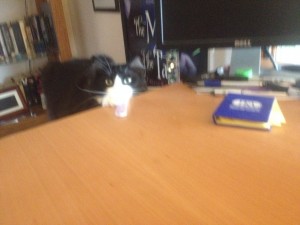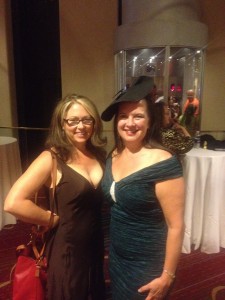 This is me and bestie/CP Carolyn Crane at the Rita Awards ceremony in New York City. So fun to get shined up and celebrate her final!
This is me and bestie/CP Carolyn Crane at the Rita Awards ceremony in New York City. So fun to get shined up and celebrate her final!
The whole week of the RWA National Conference is a major whirlwind of activity. I try to post stuff online via my phone, but it’s really hard to keep up with replies. All those real-life people interfere with the online conversations! I also try to post nuggets of wisdom I hear in workshops and panels, mostly to Twitter. People really seem to love those and often begin following me on Twitter as a result. Which is lovely, of course, but it creates this backlog of follows for me to retrace and then decide whether to followback.
I know some people pay no attention to the follow notifications. Others automatically follow everyone back. I pick and choose via a shifting system that’s pretty subjective, but does follow a few rules. I thought I’d share them here.
1) How many followers vs. people they follow?
As of this writing, I have 3,958 followers and I follow 2,630. No way I keep track of everyone I follow. I use lists in Tweetdeck to see what I can, which the last statistics I saw indicated is around 200 people on average. Apparently that’s about as many as a human can really keep up with. So, when somebody follows upwards of 10,000 people? I’m dubious. If they follow just a few hundred more people than follow them, I’m HIGHLY suspicious. If they have huge numbers of followers and follow very few, I know they only want to collect my follow and will unfollow as soon as possible so they can broadcast to me. No. Just no.
2) Hashtags in the Profile
Easy decision. Makes me think they’re only in it to market. An instant decision for me there.
3) No profile.
Either lazy, a scammer or just wanting to lurk and view. No need to followback.
4) A plea to followback in the profile or the #teamfollowback hashtag.
No.
5) Lots of book titles in the profile.
This is a maybe. Lots of authors follow me and plenty do this. It’s not an instant no, but it’s a flag. I want to follow and support people, not be bombarded with pleas to buy their books. I don’t KNOW that they’ll do this, which is why it’s only a flag, but it increases the likelihood in my mind.
At this point, if I’m still a maybe – and a nicely done profile without follower/followee imbalances would already be a yes – I look at the timeline.
6) Is it full of thanks to people for following back?
Depending on how much, this is a no as I’m inclined to think they’re simply collecting followers.
7) Is it full of promo for something or other?
No no no.
8) Is it all output and no replies or conversations?
No. I’m not interested in reading a billboard.
9) Is it all retweets or inspirational quotes?
Eh. Nothing against that, but also nothing to interest me. No.
10) Did you unfollow me?
This comes much later. I get a weekly report from Tweepsmap that tells me how many followed that week, how many unfollowed and other metrics. For the most part I don’t look at it. Some of the maps are fun. I don’t look at who followed, because I already do that via notifications. I do usually look at who unfollowed, just to see if I still follow them. The majority – and I seem to get 15-20/week – are ones I did not followback, which is fine. They were either in it to get me to follow and quit me when I didn’t (or planned to do so on a certain schedule anyway), or didn’t like following me, which is also fine. But I don’t need to follow them. That isn’t to say that I don’t follow people who don’t follow me back – there are plenty of those. This is only people who followed me first and never gave any value back.
All of this said, I occasionally miss new followers – like when I’m crazy at a conference! – and the surest way to entice me to followback is to talk to me. Say something! When people reply to me I always look to see if I’m following and remedy that, if not.
Of course, there was that one guy who kept replying to me with annoying mansplaining, then would chide me for not following back, declaring his intent to give me EVEN BETTER content so I *would* followback. Yuck. He eventually went away.
So, what about all you Twitter people – any rules of thumb you use on deciding followbacks that I missed? Or maybe mine that you don’t agree with?


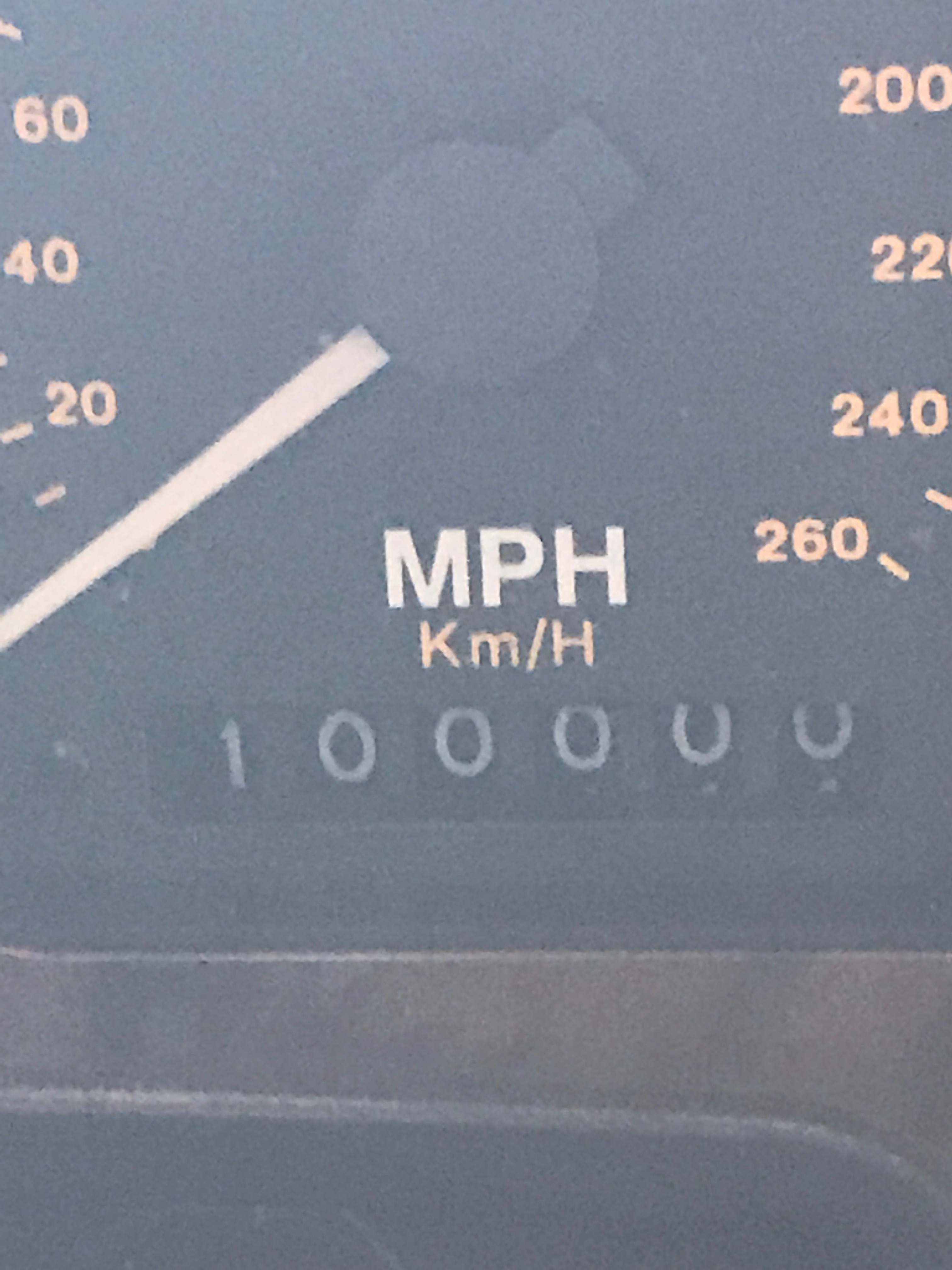
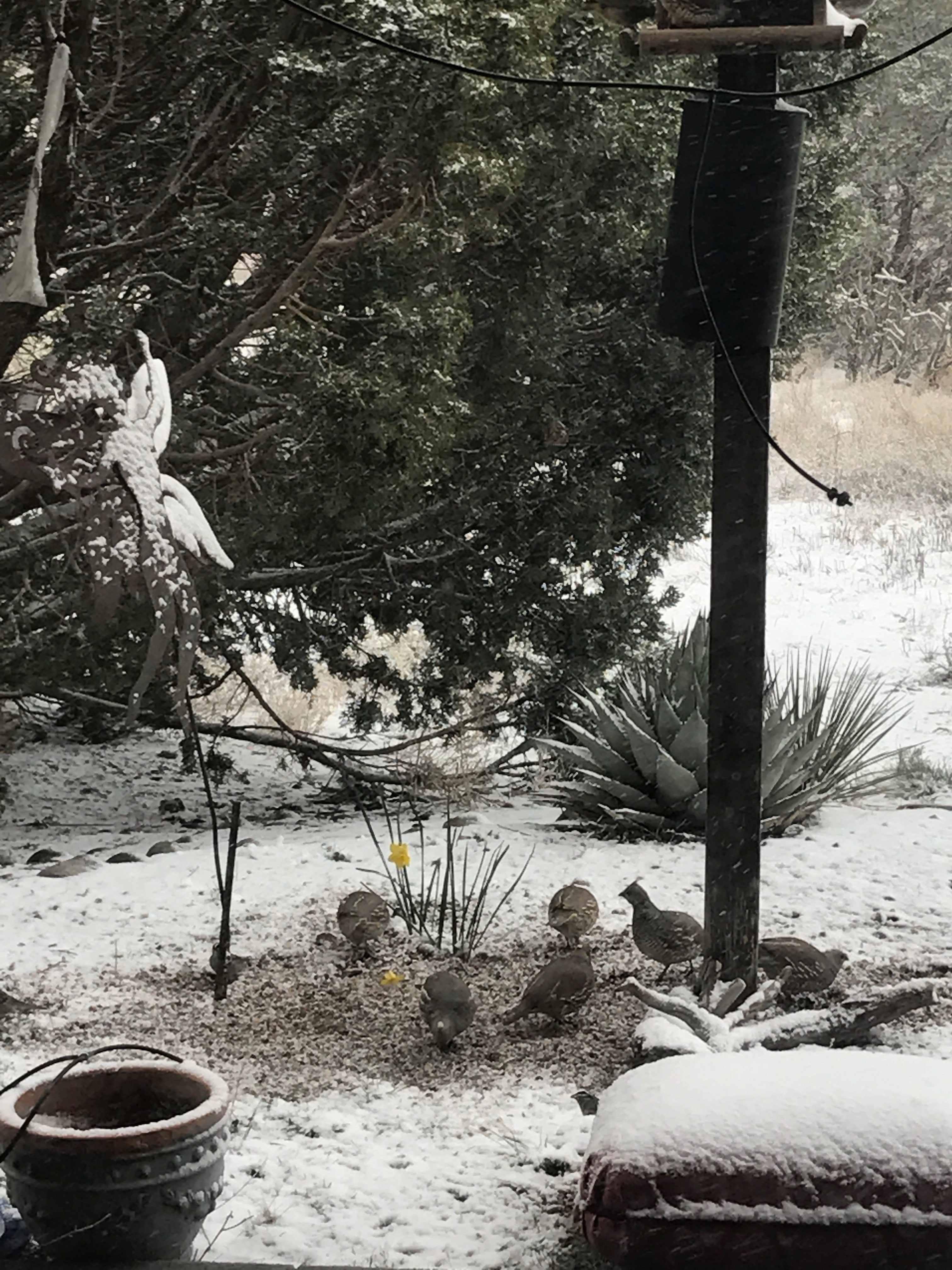
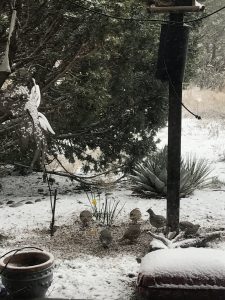 We’re having a lovely April snowstorm today, which means the quail are here in force, and looking for food. They kick up the snow and gravel with their claws, to get at the dropped seed below the feeder. I took this photo from my office window. They scratch for seed while I scratch for words. It feels very companionable.
We’re having a lovely April snowstorm today, which means the quail are here in force, and looking for food. They kick up the snow and gravel with their claws, to get at the dropped seed below the feeder. I took this photo from my office window. They scratch for seed while I scratch for words. It feels very companionable.
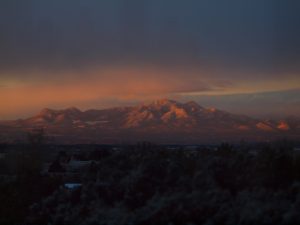 When I was in grad school, I drove this old Honda Accord that my folks passed on to me. It was a great car and I loved it. Got me everywhere, always started, great zippiness and gas mileage. At one point, I needed to replace the windshield and also some wheel bearings. I can’t recall why I did it this way (this was probably 25 years ago), except that I was poor, but I sourced a new windshield and the wheel bearings at a salvage yard in Greeley, Colorado. I lived in Laramie, Wyoming at the time – about 1.5 hr drive north of Greeley – so I drove down, picked up the parts and drove them down to Denver (another hour) to my mechanic to install. Denver is where I grew up and where my folks were, so I’m sure this made logistical sense at the time, timed with a visit to them. Why I wanted to go to that mechanic has totally escaped me.
When I was in grad school, I drove this old Honda Accord that my folks passed on to me. It was a great car and I loved it. Got me everywhere, always started, great zippiness and gas mileage. At one point, I needed to replace the windshield and also some wheel bearings. I can’t recall why I did it this way (this was probably 25 years ago), except that I was poor, but I sourced a new windshield and the wheel bearings at a salvage yard in Greeley, Colorado. I lived in Laramie, Wyoming at the time – about 1.5 hr drive north of Greeley – so I drove down, picked up the parts and drove them down to Denver (another hour) to my mechanic to install. Denver is where I grew up and where my folks were, so I’m sure this made logistical sense at the time, timed with a visit to them. Why I wanted to go to that mechanic has totally escaped me.


